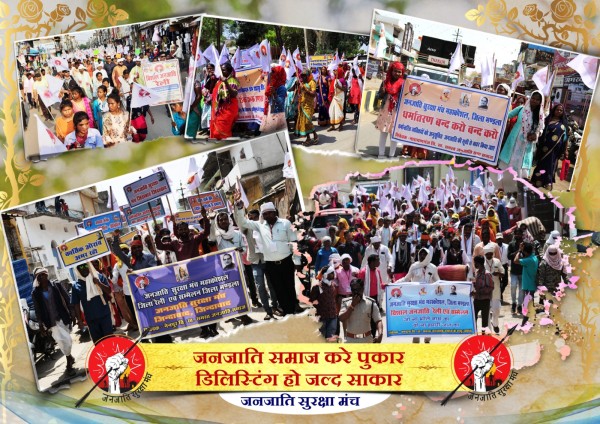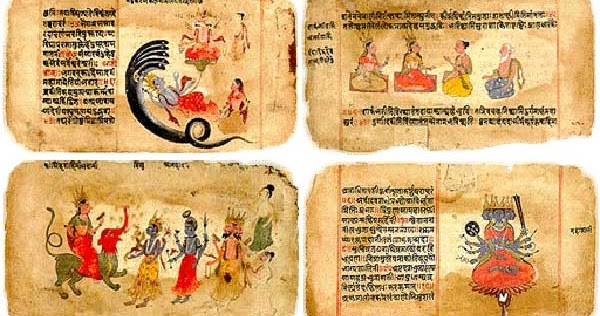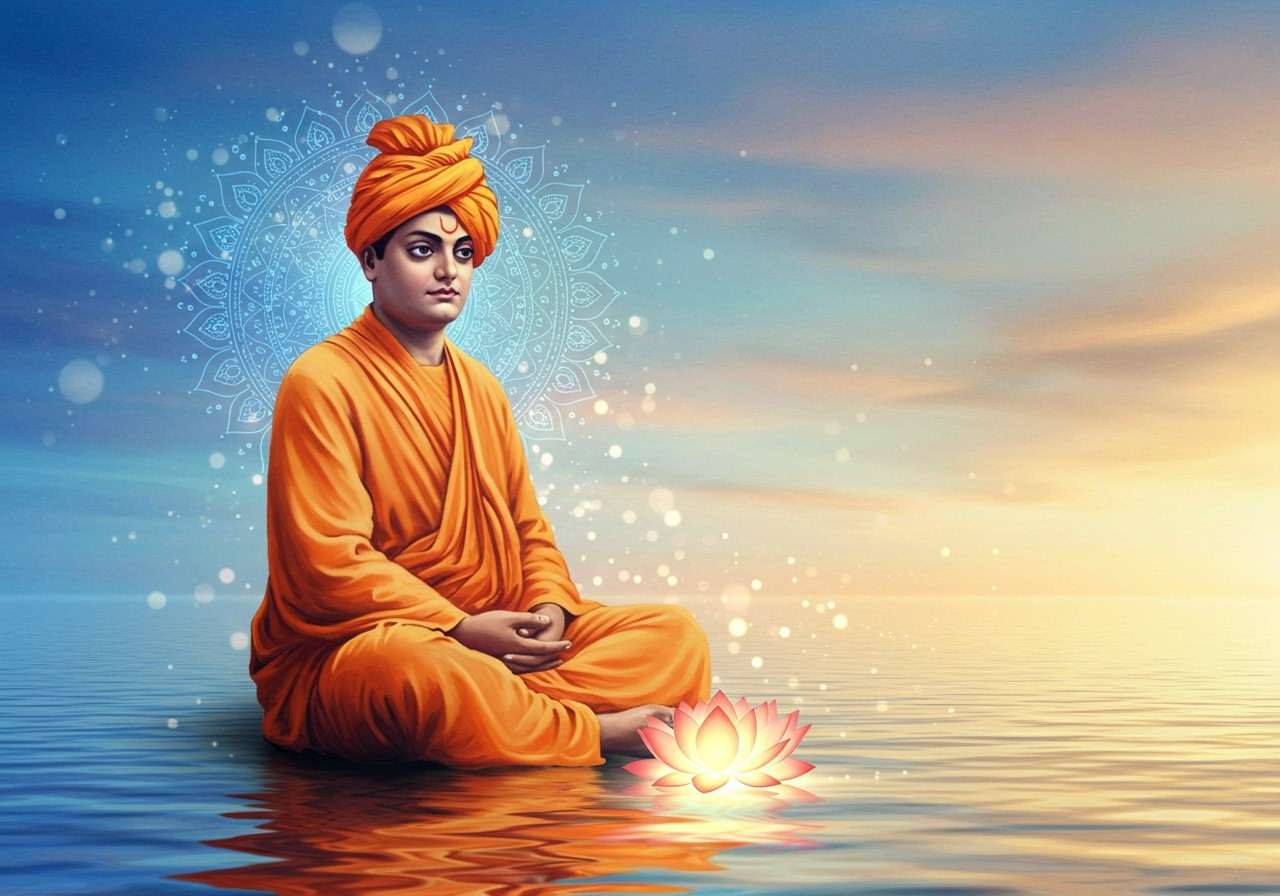Dr BHUPENDRA KUMAR
According to the Government of India Act of 1935, Indian Christians are those groups who abandoned the tribal way of life and converted to Christianity. They have been consistently counted as Indian Christians and have also availed the special rights of minorities.
During the Fourth Lok Sabha, senior Congress leader and representative of the tribal community in Parliament, Dr. Kartik Oraon, recognized the plight of the tribes in democracy and expressed his feelings as follows: "Independent India could not recognize the wailing voices in the forests of India. The historical exploitation of tribes in the harsh geographical conditions of the country was not acknowledged. The representation of Harijans, Muslims, Sikhs, and Christians in the Indian Parliament and democracy has been sufficient and appropriate, but there has been no awakening of justification and humanity for the tribes."
Kartika Babu's sensitive mind continued to awaken him to this issue. The question now is whether they (the tribes) will survive or disappear forever. Currently, the tribes are at a crossroads. Which direction should they turn? Wherever they turn, they have been exploited for a long time and have suffered significant losses, which I cannot detail extensively. Nevertheless, if you are a tribal, let consciousness arise in you, and if you are a non-tribal, let humanity awaken in you. This will always be my effort.
These sentiments belong to none other than Dr. Kartik Oraon, the Ambedkar of the tribes. He considered the inclusion of converted Christians in the constitutional definition of tribes to be naturally, constitutionally, socially, and politically incorrect. He expressed his astute wisdom and clear concern regarding the need to rectify this. For this purpose, he waged a historic battle against the exploitation of genuine tribes through constitutional, parliamentary means and even against his own highest leadership.
Religion of the Tribes
It is true that the religion of the tribes is not mentioned in the Constitution of India, but isn't it also true that tribes worship deities to ensure a good harvest? They sacrifice goats and chickens to appease the gods. They believe in all the deities residing in rivers, mountains, and forests, worship their clan deities, and sometimes refer to their supreme deity as Bada Dev, sometimes as Mahadev. Sometimes they celebrate Gauri and sometimes they kindle the sacred fire of Dham Dhuni.
All tribes are inherently part of India's Sanatan culture. The tribal communities are the originators of the Agama tradition of Sanatan culture, which has been flowing continuously since ancient times. The way of life in accordance with the warrior code of Maharani Durgavati and Rana Punja Bhil is indeed the religion of the tribes. Will this fact not be accepted in Indian democracy, or will everything be left to the winds of politics? These questions constantly occupied the sensitive, just, and inclusive developmental mind of Kartik Babu.
Who are Indian Christians and what is their relation to tribes?
According to the Government of India Act of 1935, Indian Christians are those groups who abandoned the tribal way of life and converted to Christianity. They have consistently been counted as Indian Christians and have also availed the special rights of minorities.
Until 1952, Indian Christians represented constituencies that were specifically created for them by the colonial British government. To clarify further, Indian Christians are those who in some manner adhere to Christianity and are not Anglo-Indian or European. Indian Christians are essentially converted tribes who have now left the traditional tribal path.
As per the decision of the Indian Parliament (Constituent Assembly) in the meeting on May 11, 1949, the practice of reservation in the legislature for all minorities, including Indian Christians, was abolished. Thus, the reservation for converted tribes in the assembly under the 1935 Act was terminated. This decision of Parliament was to be implemented in its form.
Scheduled Tribes, Religion, and Reservation
In independent India, according to our Constitution, Scheduled Castes (SC) and Scheduled Tribes (ST) have been provided with reservation and protection for constitutional purposes.
Scheduled Castes (SC) include all castes, families, and such groups that have not left the Hindu religion, meaning that castes adhering to Hinduism are called Scheduled Castes.
However, unfortunately, this shortfall was left in the legislative framework for Scheduled Tribes (ST) because the tribes did not have a prominent leader during the constitution-making process (those who were there were also influenced by the colonial regime and Christian missionary policies), whereas the Scheduled Castes had significant leaders, including Babasaheb Ambedkar.
The constitutional definition of tribes does not mention religion. As a result, converted tribes who are also Indian Christians (considered a minority as per the 1931 census) remained within the Scheduled Tribes and took undue advantage of the ST reservation and protection meant for constitutional purposes.
Isn't this severe discrepancy in the notification issued by the Honorable President under Articles 341 and 342 of the Constitution for the purpose of achieving tri-dimensional justice and liberation from exploitation a glaring and living misfortune for the tribes?
Dr. Kartik Oraon continuously endeavored to ensure that, like the Scheduled Castes, converted individuals should not remain within the Scheduled Tribes. This means that individuals or communities who have abandoned the Sanatani and traditional tribal lifestyle and culture should be excluded from the constitutional definition of Scheduled Tribes. Indian Christians were primarily included in this group.
After gaining knowledge of the issue and subsequent governmental intervention, some superficial efforts were made at the level of the union and several state governments. However, in his study, Kartik Babu found that Indian Christians were ostensibly opposed to remaining on the Scheduled Tribe list and, due to the silent consent of various levels of government and the ignorance of the entitled tribes, Indian Christians were openly usurping a significant portion of the welfare privileges intended for tribes.
According to him, Christians' representation in All India Services was more than two-thirds, while their population in STs was only 5%. Similarly, in state services, scholarships, and funds distributed to NGOs, they were taking advantage of facilities many times over their numbers.
For welfare work, this dual, dangerous, and exploitative system created by 6% Christians over 96% tribes was highly unjust. His study revealed that the Indian government spent 74 paise per year on tribal welfare, while ₹255 was spent on a Christian's welfare. Indian Christians were not only taking advantage of tribal privileges but also minority benefits. What could be a greater discrepancy than this?
Dr. Kartik Urav's historic legislative effort to exclude converted indigenous people (ST)
However, unfortunately, the education system for Scheduled Tribes (ST) has been left out because there were no major leaders among the tribes during the drafting of the Constitution (those who were there were also influenced by colonial rule and Christian missionaries), whereas Scheduled Castes had quite a few big leaders including Babasaheb Ambedkar.
There is no mention of religion in the constitutional definition of tribes. For this reason, converted tribes, including Indian Christians (also a minority according to the 1931 census), remained jammed in Scheduled Tribes and turned a blind eye to the reservation and protection of SCs. Isn't this a serious inconsistency in the notification issued by His Excellency the President under Articles 341 and 342 of the Constitution for tri-dimensional justice and liberation from exploitation?
Dr. Kartik Urav consistently attempted that like Scheduled Tribes, converted people should not be in Scheduled Tribes, meaning individuals or communities who have abandoned the traditional and natural tribal way of life, abandoned culture, were excluded from the constitutional definition of Scheduled Tribes. Mainly included Indian Christians.
After coming to know the subject and after intervention at the government level, several superficial attempts were made by the Sangh and several state governments. But Kartik Babu found in his study that Indian Christian people oppose staying in the Scheduled Tribes list as a demonstration and are occupying a large part of the welfare special rights of Scheduled Tribes due to the silent consent of various levels of governments and the ignorance of (deserving) tribes.
According to him, in the Indian services, representation of Christians was more than two-thirds, while their population was only 5% in the ST. Similarly, they were grabbing many times more facilities in the distribution amount for state services, scholarships, and NGOs than their numbers were against. They had created a deadly and obstructive system that doubled Kalyan's work by 6% Christians for 96% tribes. He found in his study that the Indian government spends ₹74 per year for the welfare of tribes, while ₹255 is being spent for the welfare of a Christian. Indian Christians were not only grabbing the rights of the tribes but also the rights of minorities. Wasn't this a serious inconsistency?
The government later said that they would debate this bill in the next session of Parliament, but unfortunately, on December 27, 1970, the Lok Sabha adjourned and the bright future of the tribes once again plunged into darkness. Reading Dr. Kartik Urav's book "Twenty Years of Darkness" in this context makes us feel this tragic end of a new dawn for the tribes. Think! How would respected Kartik Babu and his life's purpose have felt?
It doesn't seem here that the government is adhering to the principle of non-discrimination on the basis of religion, caste, or community as per Article 15(1) of the Constitution. Instead, it succumbed to the pressure from Christian converts who engaged in religious conversion activities within the tribal areas.
For educated minds concerned about the welfare of tribal brothers and sisters, it must also be noted that after this incident, the Catholic Mission's magazine wrote in June 1970 that not being in the Scheduled Tribes list would obstruct their religious publication and dissemination.
Has the categorization under Article 342 of the Constitution been done for religious propagation or for establishing social, economic, and political justice? Dr. Kartik Urav's efforts under the definition of Article 342 and in this context, the process, policy, and procedure for justice have been unfortunate so far.
To bring uniformity in the definition of Scheduled Tribes and their listing, and to eliminate existing discrepancies, the Indian government formed the Lokur Committee in 1965. The committee meticulously examined the definition and criteria for Primitive Tribes of the 1931 census and Backward Tribes under the 1935 Act. It determined that the primary basis for scheduling Scheduled Tribes is their social organization and general way of life. Combining all these standards, they provided five criteria, among which three social-cultural criteria are extremely significant:
1. Indications of ancient characteristics;
2. Specific culture; and
3. Interaction with the community on a large scale
These three criteria highlight the distinct identity of Scheduled Tribes. The Lokur Committee expressed the following facts in its report:
"We have considered that tribes whose members have by and large mixed up with the general population are not eligible to be in the list of Scheduled Tribes."
The essence of the committee's conclusion is that tribal groups who have abandoned their natural tribal way of life (primitive path) and adopted either Christianity or Islam have separated themselves from their distinct tribal culture. Now, they are no longer on the primitive path. The bill presented in the Lok Sabha in 1967 and the Lokur Committee's opinion emphasize that those who are not on the primitive path cannot be Scheduled Tribes for constitutional purposes.
In our nation, over 90 million indigenous people reside in areas of critical importance to national security and international borders, yet they remain at the bottom in development standards. Now is the time to uplift them from oblivion to prosperity. To achieve this, specific cultural aspects defining Scheduled Tribes should be explicitly defined in the Constitution, aligning with the principles and facts of Dr. Kartik and the Lokur Committee. A new decision should be made under Article 342 of the Constitution, which will be in line with Scheduled Article 341. Those who have abandoned the ancient religion-culture are not Scheduled Tribes, so how can they remain Scheduled Tribes?
Looking with empathetic sentiments, in our 75-year-old democracy, viewing tribal hearts and lives with sympathy, the awakening of consciousness from darkness to light through transformative leadership's pen promises a significant decision for India. Completing the pending legislative work of Parliament since 1970 and amending the constitutional definition of Scheduled Tribes will weaken destructive and anti-national forces while promoting the Shivmay-Shaktimay consciousness of forest rule, which will pave the clear path for the holistic development of our tribes, which will be legally and culturally sound.
Seen in cultural, political, national, and geographical contexts without converted tribes, this task is a comprehensive upliftment from oblivion to national prosperity.






